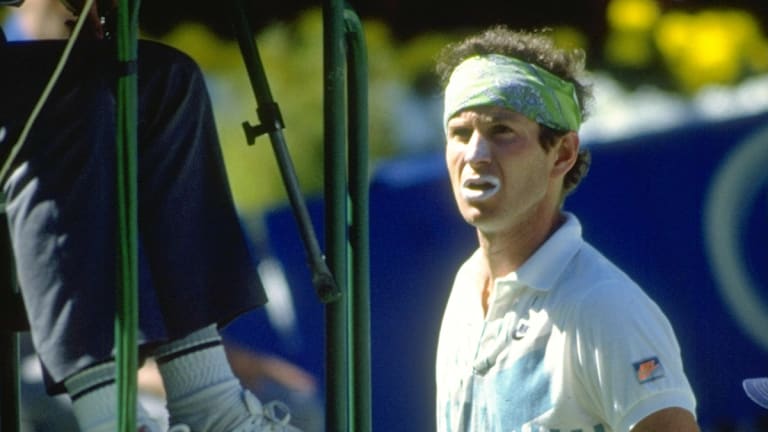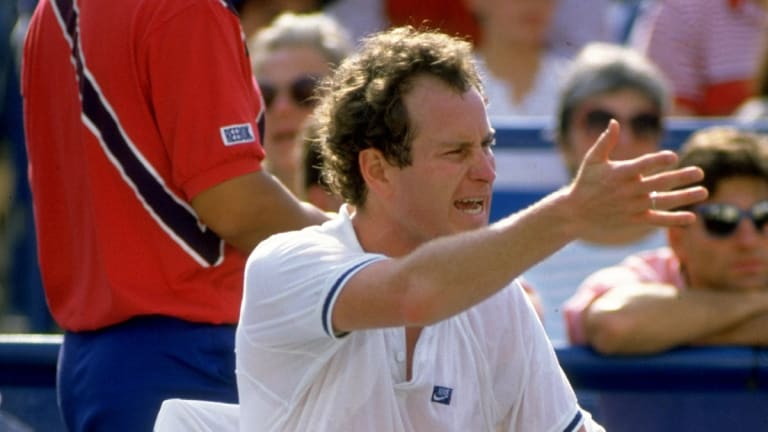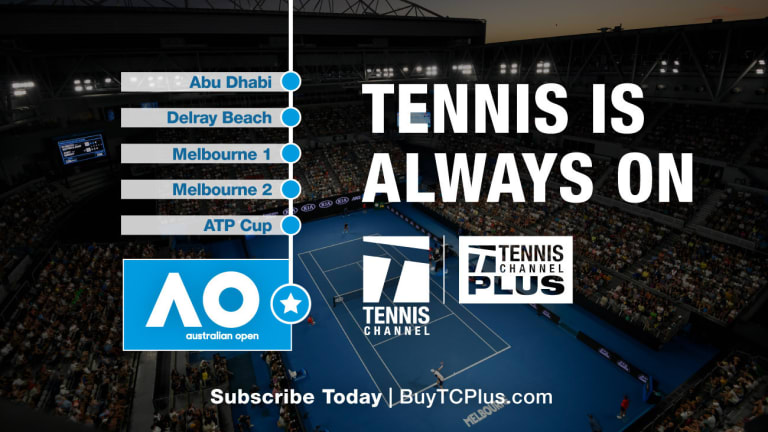Australian Open
TBT, 1990: John McEnroe defaulted in fourth round of Australian Open
By Jan 21, 2021Australian Open
With Australian Open defeat, world No. 1 Aryna Sabalenka has a Grand Slam finals problem
By Feb 02, 2026Australian Open
“I just got mature”: Carlos Alcaraz used his full arsenal to beat Novak Djokovic and complete the career Slam
By Feb 01, 2026Australian Open
Novak Djokovic may finally have run out of house money
By Feb 01, 2026Australian Open
AO champ Carlos Alcaraz "happy to prove all the people were wrong" after triumphing in first event without Ferrero
By Feb 01, 2026Australian Open
Two words of advice—"More energy"—was all Elena Rybakina needed to turn AO final around
By Jan 31, 2026Australian Open
Carlos Alcaraz is playing for the career Slam. Novak Djokovic is playing for the most Slams.
By Jan 31, 2026Australian Open
Elena Rybakina's late rally stuns Aryna Sabalenka and secures Australian Open title
By Jan 31, 2026Australian Open
"This is bulls---": Alexander Zverev fumes about, then accepts, Carlos Alcaraz cramp drama at Australian Open
By Jan 30, 2026Australian Open
Jannik Sinner had Novak Djokovic's number, so the legend "had to change it" ahead of AO classic
By Jan 30, 2026TBT, 1990: John McEnroe defaulted in fourth round of Australian Open
“It was just one little four-letter word. The guy could have let me off,” the American said. This was the first time a player had been defaulted from a Grand Slam event since 1963.
Published Jan 21, 2021
Advertising

TBT, 1990: John McEnroe defaulted in fourth round of Australian Open
Advertising

TBT, 1990: John McEnroe defaulted in fourth round of Australian Open
Advertising

TBT, 1990: John McEnroe defaulted in fourth round of Australian Open